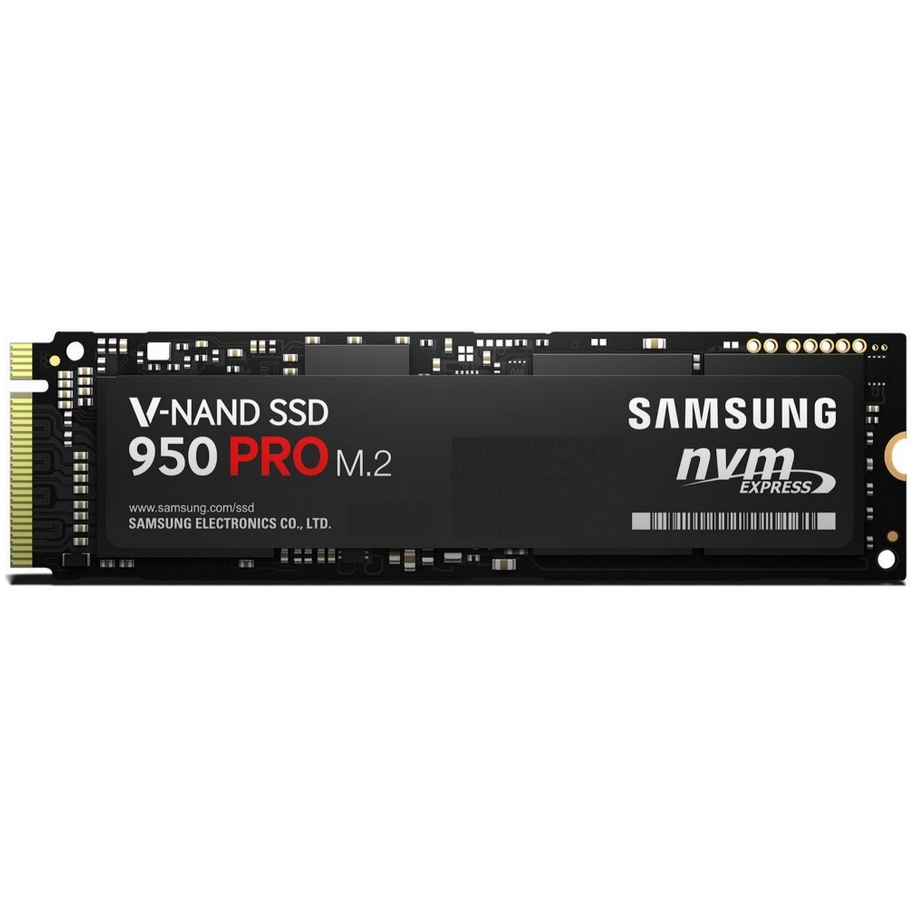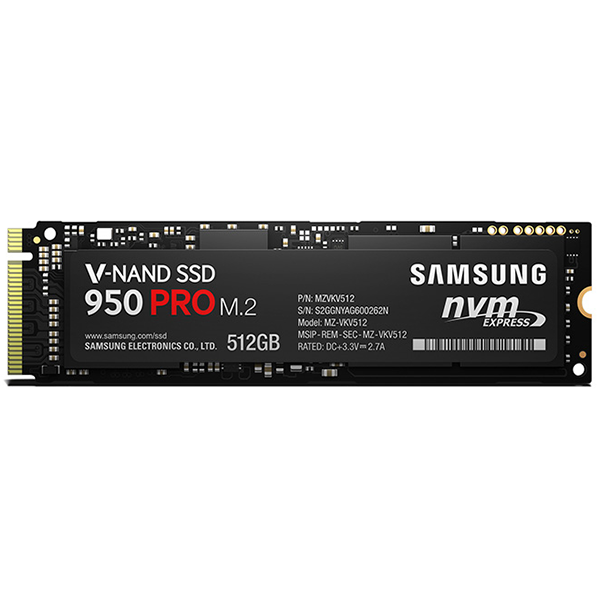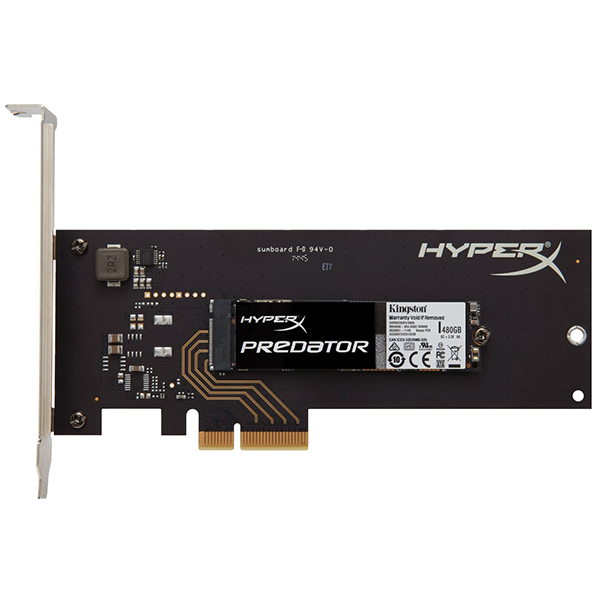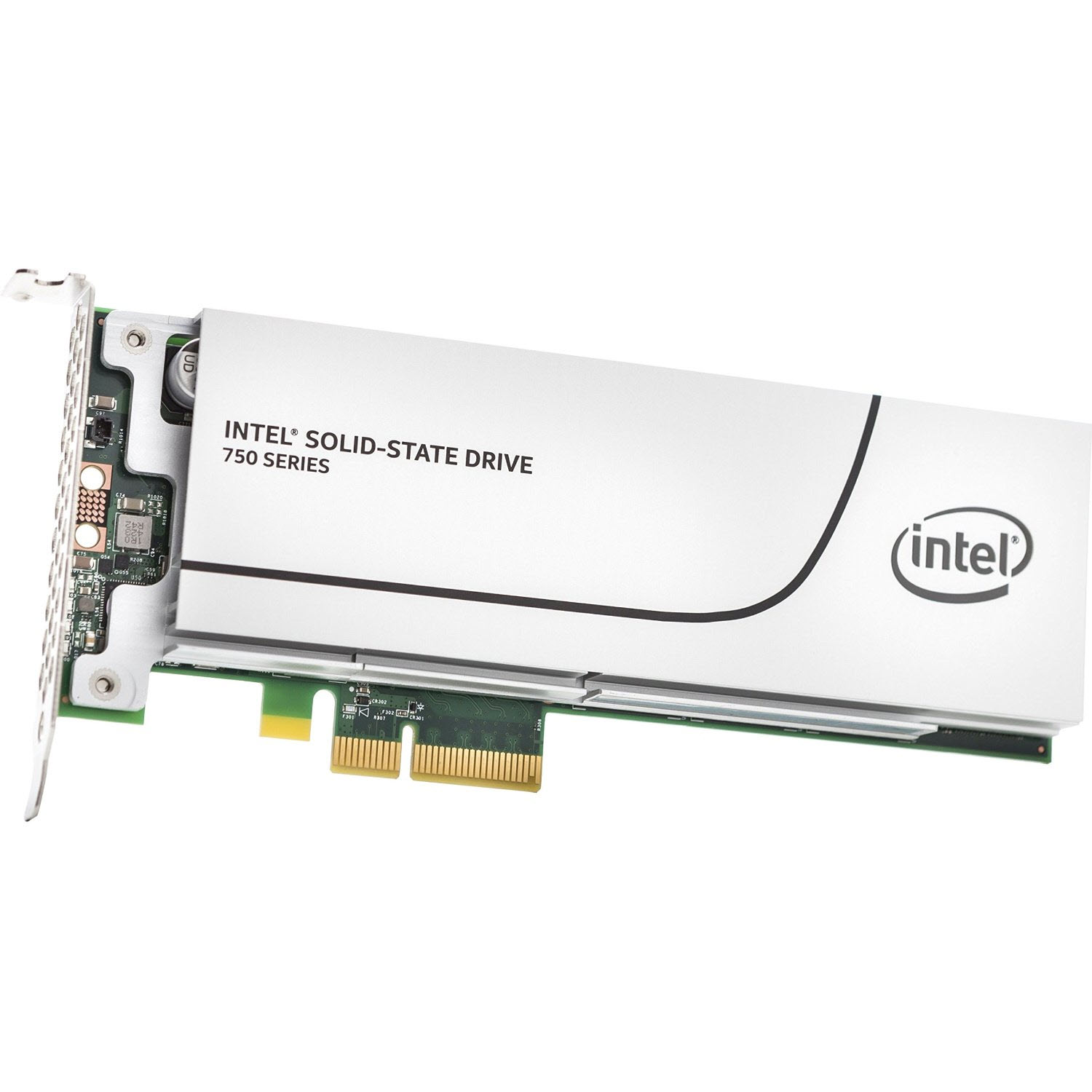Intel 750 Series 800GB NVMe PCIe SSD Review
Why you can trust Tom's Hardware
Four-Corner Performance Testing
Comparison Products
To read about our storage tests in-depth, please check out How We Test HDDs And SSDs. Four-corner testing is covered on page six of our How We Test guide.
Sequential Read
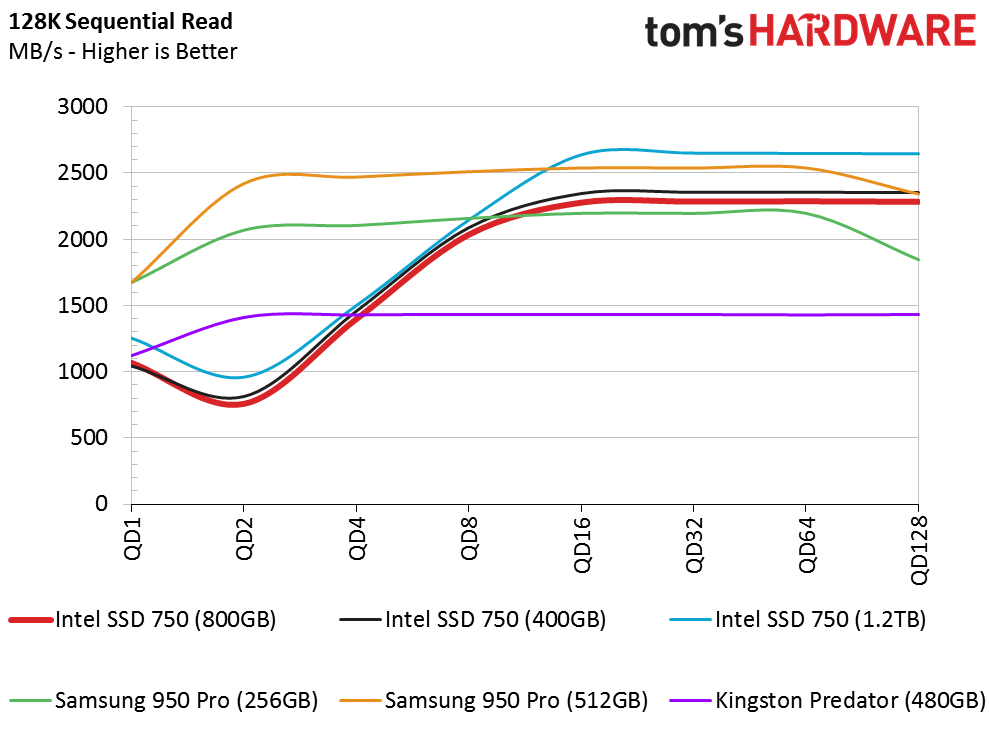
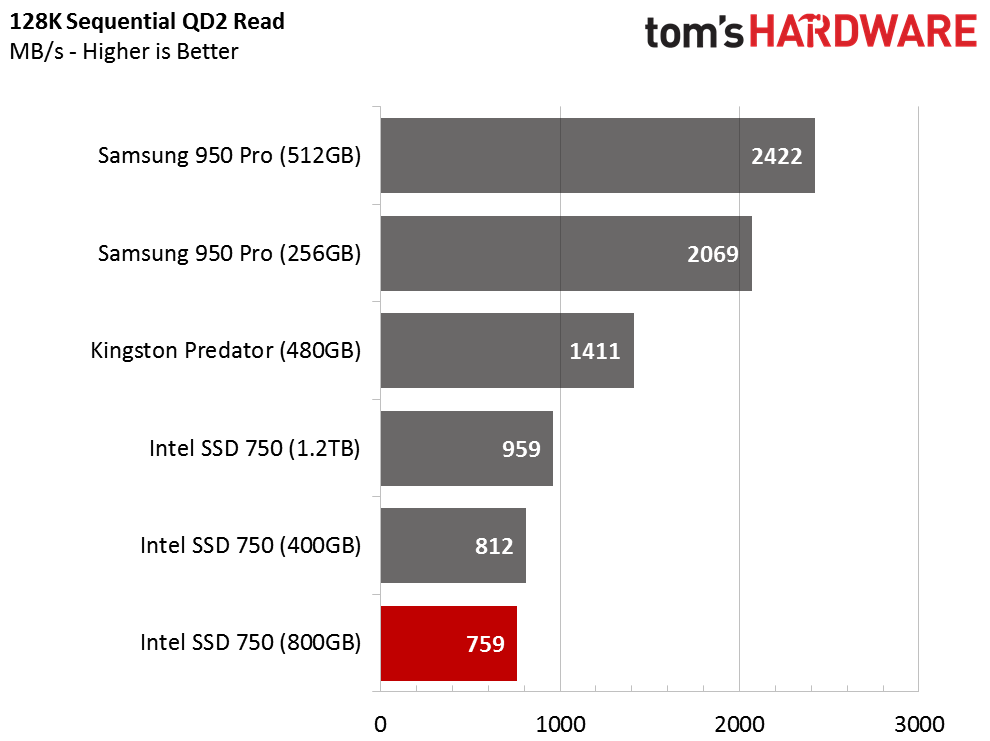
All three of the SSD 750s experience a dip at a queue depth of two during our sequential read test. Back when we only had one of these drives, we spent a lot of time looking at our methodology and trying to smooth out the results. But after benchmarking three different capacities, we're certain that the dip comes from Intel's controller and not our metrics. The hit comes at an unfortunate time too, since we use the QD2 results to build our chart that reflects desktop performance. Once the SSD 750s get past that hiccup, they speed up under more intense workloads.
Sequential Write
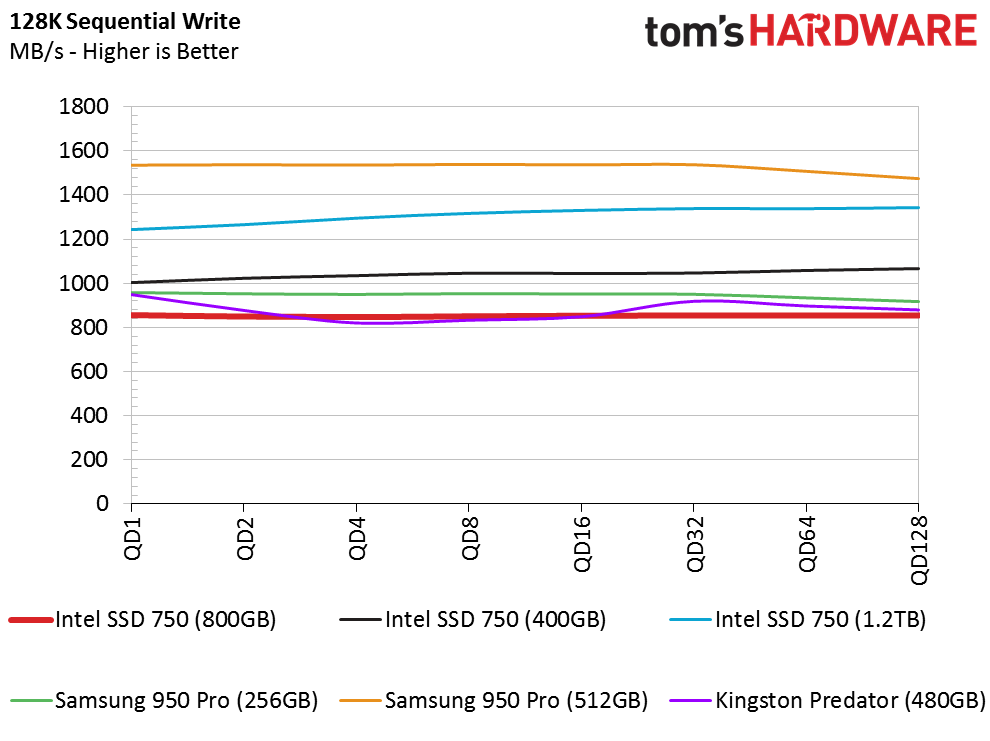
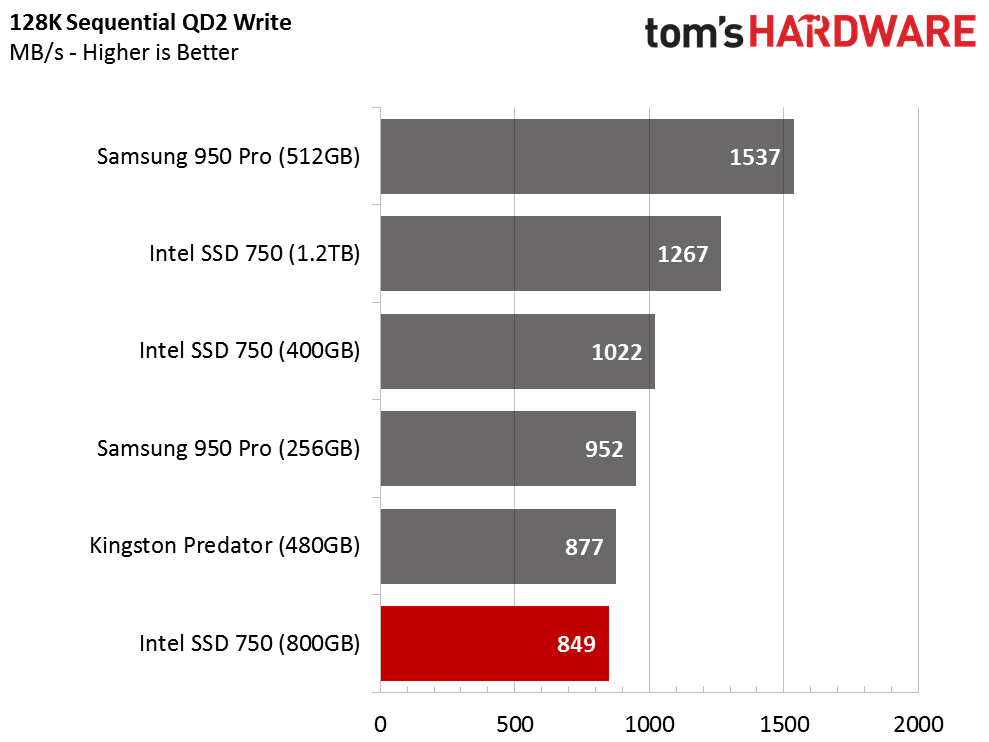
The performance curve changes when we apply sequential writes. Throughput remains flat across the chart, and it doesn't change as much when the workload ramps up. Each charted NVMe-based drive boasts more impressive specs than our numbers would indicate. That tells us we need more workers to write data. You'd get them in an enterprise environment, but not so much on the desktop. Staying true to an enthusiast PC, we're sticking with a single worker.
Random Read
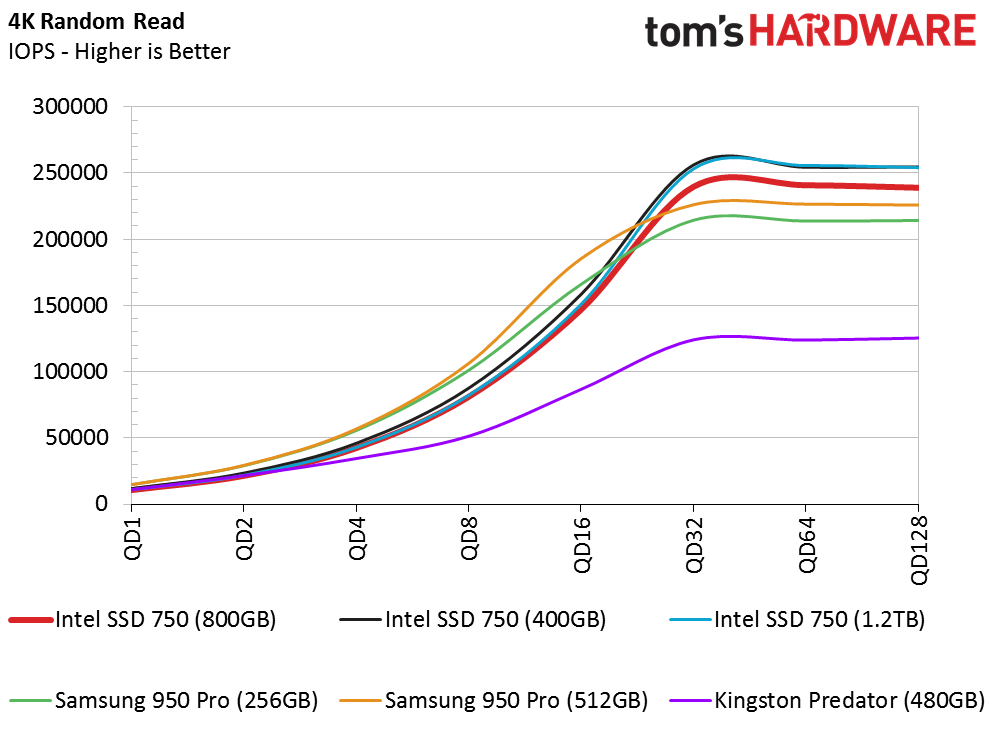
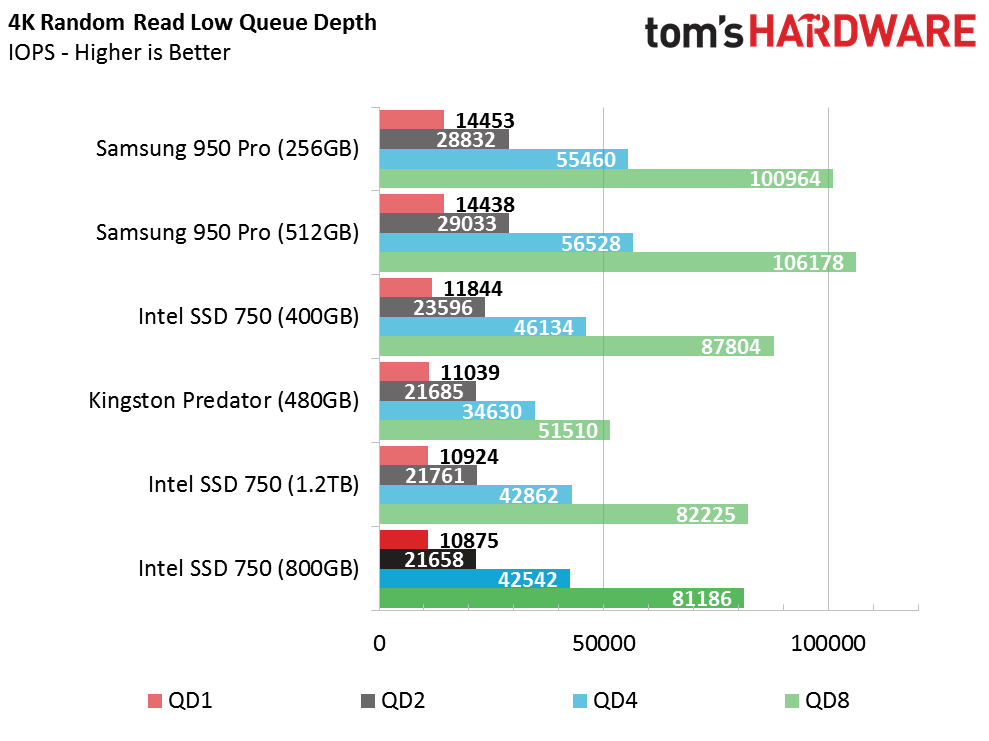
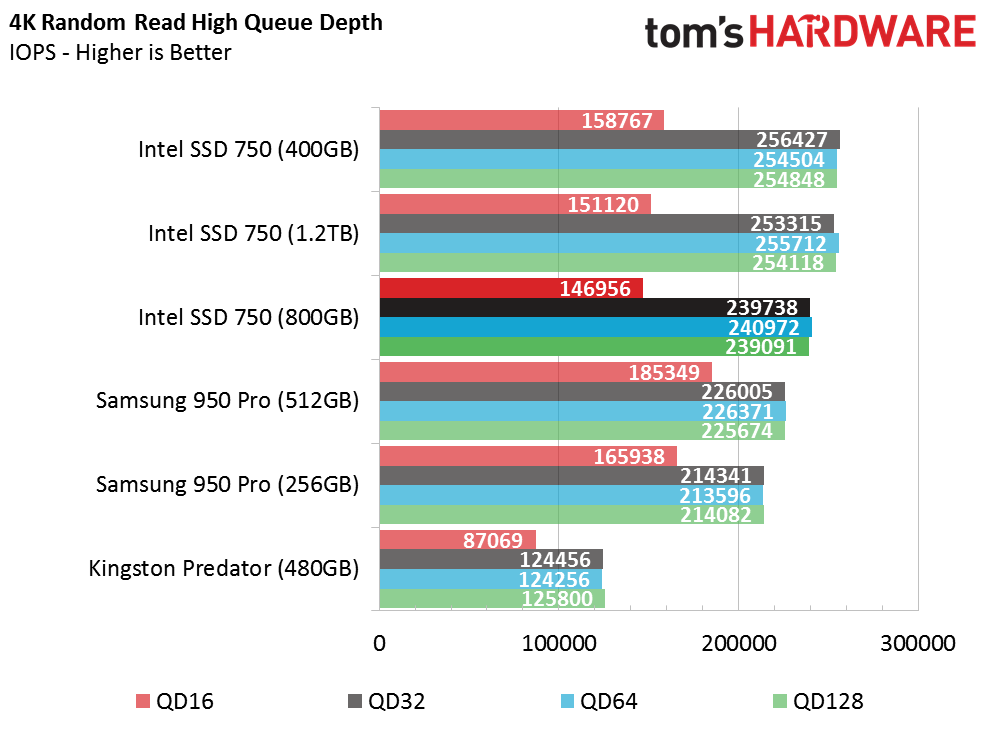
NVMe's biggest contribution to your storage experience is lower random access latency. This allows the 800GB SSD 750 to deliver gobs of I/O performance at low queue depths, even when we're dealing with 4KB blocks of data. The middle child trails Intel's 400GB and 1.2TB models at a queue depth of one, but still delivers almost 11,000 IOPS. Increasing the queue depth steadily improves performance before it levels off at 240,000 IOPS.
Random Write
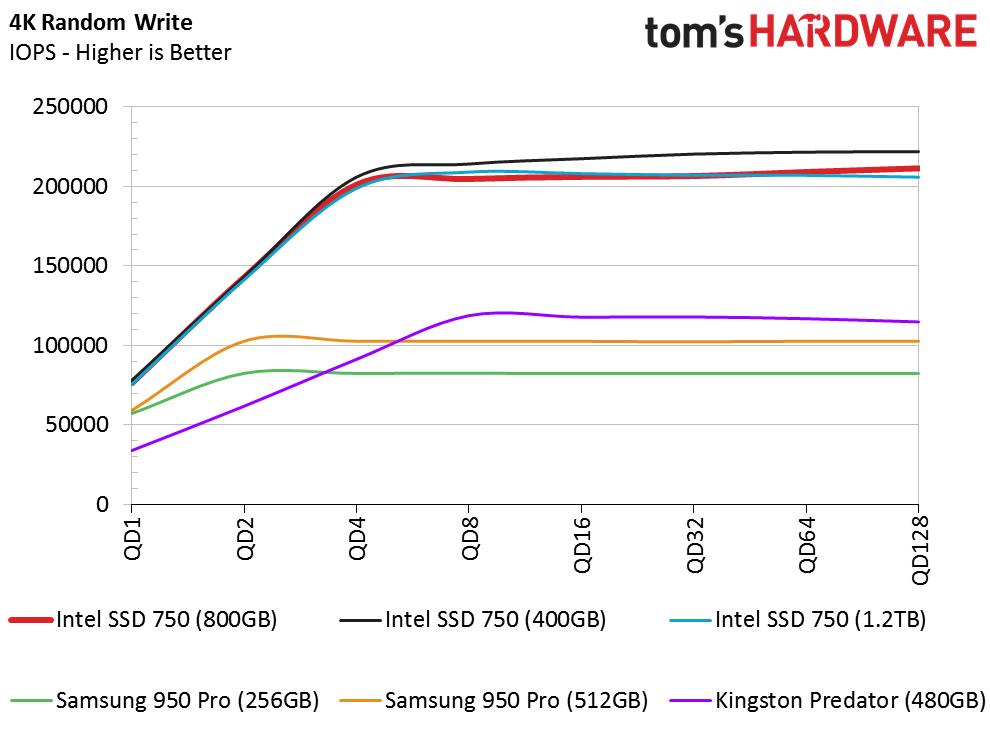
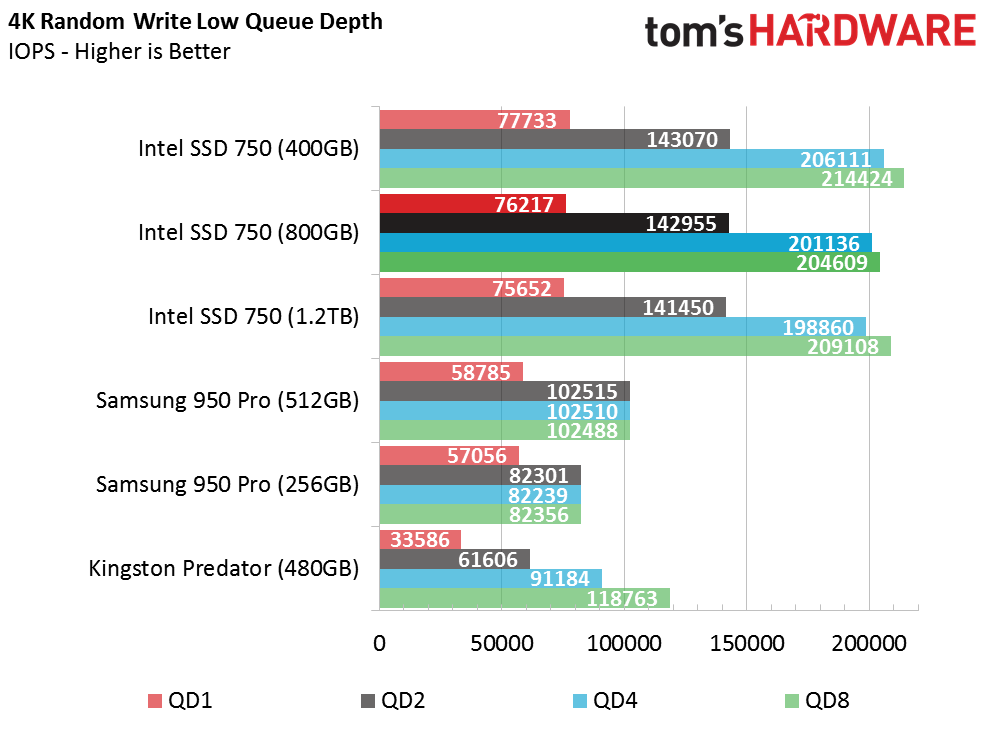
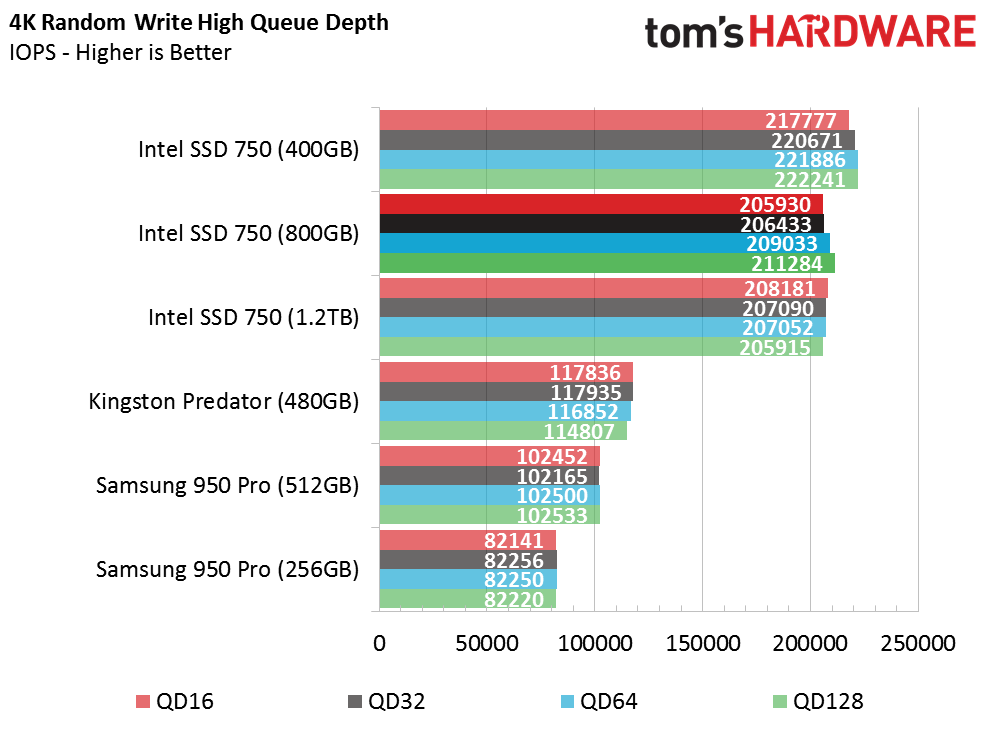
In most of the tests up until now, the SSD 750s trailed Samsung's UBX-based drives. The random write tests are dominated by Intel, though. The difference is evident even at a queue depth of one, and by QD2, Intel's drives hit higher IOPS than Samsung's controller can manage.
On your desktop, that difference is felt more than it's seen. An enthusiast PC writes thousands of small files each day in the background. And in many cases, a small write precedes a read request. If a write command hangs or is delayed, you encounter a slight pause. You won't have that issue with Intel's SSD 750s.
Get Tom's Hardware's best news and in-depth reviews, straight to your inbox.
Current page: Four-Corner Performance Testing
Prev Page Specifications, Pricing, Warranty And Accessories Next Page Mixed Workloads And Steady State
Chris Ramseyer was a senior contributing editor for Tom's Hardware. He tested and reviewed consumer storage.
-
robodan918 Having owned the Samsung 950 Pro 512GB for a month now, I can say I'm consistently impressed and considering the price difference (I bought it for 167GBP / ~$240USD on an amazing sale) I can't justify the jump in price to the Intel 750 - even if random IOPS are nearly 2x higher. It'd probably be the difference of a blink of an eye. Still, as the 950 Pro is replacing an Intel 730, I can tell you that I've also been consistently impressed with Intel. If and when they go on sale, I usually end up convincing myself to buy them too.Reply -
Hanin33 is it me or is 70GB WPD abysmally low? especially for a 1.2TB drive. i suppose this drive series is not meant for high resolution video editing...Reply -
jchang6 there is problem in the mismatch of motherboards and PCI-E SSDs. The Xeon E3 motherboards may have 2 x8 slots, and the E5 boards might be 5x8 per socket, but more likely there is a combination of fewer slots, some x16, whereas all the affordable SSDs are x4, note that the P3608 is much more expensive. Could Intel put 2 750's on one x8 card, one connected to the lower x4 and the second to the upper x4? Alternatively, it would be nice if we could get an adapter for 2 M.2 to PCI-E x8.Reply -
rantoc So the Samsung 950 pro bets the intel 750 in low queue depths ie normal desktop workload (application starts and the like) and 750 beats 950 in higher qd's, both have their uses. Whats i like about my 950 pro over my 750 is its price/performance for desktop workloads.Reply -
hixbot I can't justify spending money on an ultra high-end SSD when Intel Optane is around the corner.Reply
